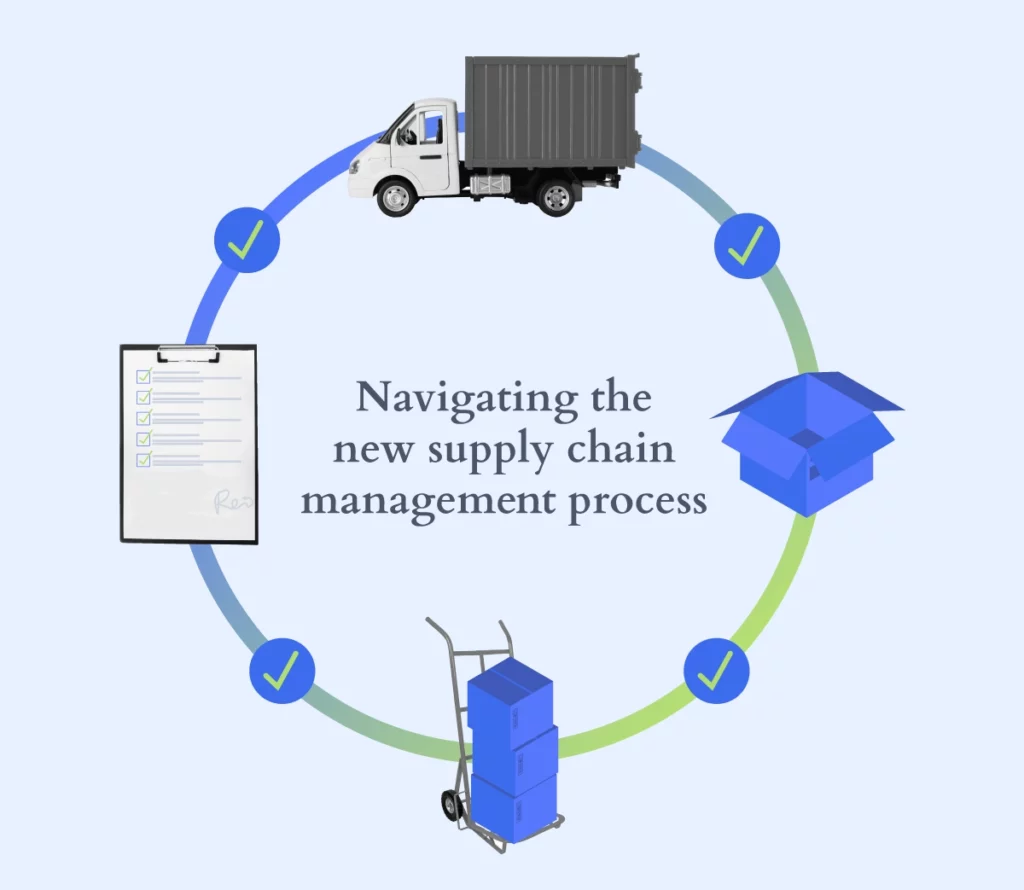Supply chain resilience starts with visibility, trust, and timely execution. But as operations stretch across currencies, partners, and regions, financial systems often become a hidden point of failure. Delayed payments, currency mismatches, or limited access to reliable rails can quietly disrupt the flow of goods before anyone notices the cause.
Banking is no longer a back-office function in this setting. It is part of the supply chain infrastructure, shaping how funds move, how fast they clear, and how predictable financial coordination becomes across global partnerships.
The Importance of a Reliable Bank in Global Supply Chains
When businesses depend on suppliers across borders, the speed and reliability of financial transactions can affect delivery timelines, production cycles, and even pricing. A bank’s role extends far beyond providing an account number. It becomes a behind-the-scenes operator in the day-to-day movement of goods and services.
This role matters most when things go wrong. Payment delays under stress, tight deadlines, demand spikes, or global disruptions can break the chain. Financial flexibility is what holds it together.
Flexibility in payment methods helps avoid friction. Support for multiple currencies removes extra steps from routine transactions. Consistent settlement processes make working with international partners more straightforward. These are not features. They are conditions for resilience.
Tools like multi-rail payment gateways help enable this kind of flexibility. Whether a business needs to accept cards, initiate wire transfers, or settle transactions with digital currencies, having those rails in place is part of staying operational when the environment shifts.
Evaluating Your Business Banking Needs for Supply Chain Resilience
Not all banks are designed for operational support. Choosing one requires clarity about where financial bottlenecks affect your supply chain most.
Pinpoint the usual sources of delay. Late supplier payments? Long settlement cycles? Gaps in how your team handles cross-border invoices or exchange rates?
The right banking setup supports continuity, not just treasury. That means giving finance teams what they need to keep payments flowing reliably across time zones, partners, and currencies. Tools that provide real-time visibility and minimize friction are no longer optional.
A business account that supports operational currencies like USD and EUR, while enabling access to 50 or more currencies globally, can reduce costly delays. These features help companies that rely on B2B payments across regions maintain agility when timing and price sensitivity matter.
Bank Solutions for Different Types of Supply Chains

Supply chains are not one-size-fits-all. A manufacturing business operating across multiple regions faces different financial demands than a retail brand managing fast product turnover. Each model needs banking services tailored to its operational pace, risk exposure, and cash flow complexity.
A versatile bank for business understands these differences and offers solutions designed to fit the needs of specific industries. This includes more than just standard checking accounts. It may involve trade finance, credit lines, dynamic currency tools, or platforms that support automated invoicing and flexible settlement.
Examples:
- Manufacturing supply chains often rely on trade finance tools like letters of credit and payment guarantees to keep production moving during long lead times or payment gaps.
- Retail supply chains need speed. Digitally integrated systems that connect payments with inventory decisions improve reaction time and cost control.
- Logistics and distribution chains benefit from multi-currency tools and smart cash flow tracking. When cross-border transfers are frequent and high in value, payment efficiency becomes part of operational continuity.
The Impact of Secure Payment Methods on Supply Chain Health
Supply chain resilience depends on more than fast logistics. Financial confidence is part of the foundation. When payments are slow, exposed, or unpredictable, even the most efficient operations lose stability.

Secure payments reduce this risk. They protect funds in motion, build trust between buyers and suppliers, and support agreements based on reliable delivery and clear terms. In many global transactions, resilience starts with a confirmed transfer.
A bank that truly supports supply chains should offer:
- Encrypted infrastructure to prevent unauthorized access
- Strong authentication to verify transaction sources
- Continuous fraud monitoring for unusual activity
These safeguards protect both sides of the transaction. Sellers ship with assurance. Buyers know their funds move securely and are not exposed to avoidable loss.
Bancoli supports this layer of trust by operating as a US Qualified Custodian. It uses military-grade encryption, strong authentication protocols, and embedded fraud controls to protect accounts and payments. These capabilities reduce risk in cross-border B2B activity.
Payment security is not a technical extra. It is a structural part of keeping supply chains dependable under pressure.
Successful Supply Chain Management with Optimal Bank Services
In global supply chains, financial services can influence operational outcomes as much as supplier reliability or logistics planning. A good financial setup helps businesses manage production cycles, stay liquid, and respond to demand shifts without delay.

For manufacturing businesses, timely access to working capital enables them to secure materials and avoid disruptions. In this context, services like trade finance or structured payment terms offer stability when lead times are long or receivables are delayed.
Retail operations benefit from banking features that match their pace. Real-time payment processing and account visibility support better inventory management. When market demand shifts, the ability to move funds quickly can make the difference between capturing or missing sales opportunities.
Logistics providers face fluctuating fuel prices, cross-border compliance needs, and high-volume payment flows. Custom credit facilities and automated payment reconciliation can reduce the financial pressure of operating across multiple time zones and regulatory systems.
Across all these examples, finance plays a support role that keeps the chain stable. The goal is to avoid making the financial layer a point of failure when conditions shift, not to replace operational execution.
Understanding Information for Supply Chain Decisions
Resilience in supply chains depends on timing across multiple layers. Logistics, production, and payments must stay in sync to avoid costly delays. That requires more than access to data. It demands insight that connects financial flows to real-world operations.
A bank for business plays a key role by providing visibility into cash positions, credit availability, payment statuses, and currency exposure. This information helps supply chain leaders align purchasing, production, and delivery with available resources.
Useful insight goes beyond a balance check. It may include:
- Cash flow forecasts based on open invoices
- Payment delay alerts and upcoming credit events
- Currency movement trends that affect sourcing
- Settlement documentation status across regions
When this kind of information is easy to access, businesses can act with clarity. They know when to buy, when to hold, and when to renegotiate. Without it, those decisions turn into guesswork.
Banks and payment solutions that offer accessible, structured, and real-time financial information reduce that uncertainty. They help transform reactive supply chain management into proactive planning.

Strategic Banking Functions Supply Chain Leaders Should Expect
In modern B2B ecosystems, baseline functionality is no longer enough.
Transaction speed and digital access are now expected. What differentiates supply chain resilience is how well your financial infrastructure adapts to cross-border complexity, partner variability, and liquidity tension.
Resilient financial setups align with real operational demands. The capabilities below are not extra features. They’re core to helping supply chains stay responsive under pressure:
- Payment flexibility: Multi-rail infrastructure lets teams choose between cards, ACH, wires, stablecoins, or platform-native transfers. This optionality supports faster payments, better supplier terms, and stronger cash positioning.
- Early access to funds: Some businesses unlock liquidity by offering early payment discounts, supported by automated invoice tools. This shifts the timeline forward without taking on credit risk.
- Multi-currency access: Operating with USD or EUR while settling transactions in 50 or more currencies reduces friction. It minimizes conversion delays in cross-border payments.
- Real-time financial orchestration: Automated reconciliation, dynamic payment scheduling, and system integrations are now table stakes. What matters more is whether your setup helps finance teams coordinate with procurement and logistics in real time.
These capabilities shape how adaptable your supply chain becomes under pressure. They are not optional features. They are operational enablers for cross-border visibility, partner trust, and financial agility.

Leveraging Business Banking to Mitigate Supply Chain Risks
Supply chain risk is not limited to logistics or supplier delays. Financial friction can trigger disruptions. Payment delays, currency fluctuation, and liquidity gaps often create cracks in an otherwise stable operation.
Used strategically, banking tools become part of your risk management structure. They are not just financial products. They are operational supports that reduce exposure and improve responsiveness.
Here are practical ways to use banking relationships to build resilience:
- Supply chain finance: Extending payment terms with supplier consent while paying them early through financing helps maintain trust without draining liquidity.
- Hedging instruments: Tools that manage currency or commodity exposure reduce the risk of pricing volatility affecting margins.
- Insurance and guarantees: Services that cover payment default or transit-related losses can protect against disruptions beyond your control.
- Partner evaluation tools: Access to financial health data on vendors or clients helps flag risk before it becomes a chain reaction.
These tools are not about adding layers. They turn finance into a source of control when markets shift. Leaders who know when and how to use them stay ready to act, not just respond.
How Financial Infrastructure Strengthens Supply Chain Performance
Global supply chains move fast, across regions, partners, and currencies. The financial systems that support them must keep up. They are no longer just conduits for moving money. They need to provide speed, clarity, and control across diverse networks. Digital banking, cash visibility, and secure settlement infrastructure are now core components of operational resilience.
Digital Tools That Match Operational Speed
Modern supply chains operate across time zones, markets, and currencies. Banking platforms must support that pace. Real-time balance visibility, automated reconciliation, and payment tracking help teams manage financial flows without relying on manual updates or overnight batch processes.
Supply chain managers need access, not just reports. Cloud-based banking tools provide timely information that connects to ERP or procurement platforms. This allows better coordination between finance and operations, especially when disruptions demand fast reallocation of funds.
Cash Management as a Supply Chain Lever
Late payments or delayed receivables can disrupt production or weaken supplier trust. What matters is not just balance, but timing.
Digital banking platforms that surface payment schedules, incoming invoices, and available financing help avoid unnecessary tension. That clarity lets businesses make better calls about shipments, purchasing, or contract adjustments.

Securing Large-Scale Transactions Without Added Friction
High-value transactions are common in sectors like manufacturing, energy, or international trade. These payments carry risk, not just from fraud but also from timing mismatches, documentation issues, or regulatory complications.
The right financial setup reduces that exposure. Secure infrastructure, predictable settlement, and support for payment verification build confidence across parties. This is not only about keeping funds safe. It is about maintaining momentum when commitments must be honored without delay.
Partnerships That Reinforce Resilience
Strong relationships are not transactional. They provide continuity during uncertainty. A bank that understands supply chain dynamics can offer flexibility during volatility, adjust terms when needed, and surface solutions before issues escalate.
These partnerships also support resilience by helping businesses vet suppliers, navigate international compliance, or explore new payment models. When your financial partner understands your operational structure, solutions feel integrated and not imposed.
The Future of Supply Chain Symbiosis
Supply chains are evolving from linear systems into adaptive, connected networks. What happens in procurement, finance, or logistics no longer stays isolated. A shift in one area triggers reactions across the others. This interdependence makes the link between financial infrastructure and supply chain execution stronger than ever.
Functions that once operated independently now converge. Data, automation, and shared incentives are breaking down silos between finance, logistics, and sourcing. Payment terms, credit access, and settlement speed now shape inventory decisions as directly as freight rates or tariff shifts.
New technologies are enabling this transformation. Predictive analytics, programmable payments, and AI-based credit evaluations give companies more ways to align financial flows with operational needs. These tools help anticipate disruptions, adjust payment conditions, and match timing to the pace of business.
Resilience is no longer about reacting faster. It is about how well systems stay coordinated under stress. Signals from suppliers, banks, and platforms combine to guide decisions in real time. The goal is not control, but shared responsiveness across the network.

How Bancoli Supports Financial Agility Across Supply Chains
Cross-border operations demand more than standard banking. Businesses must manage exposure, receive funds quickly, and adapt financial operations to shifting conditions. In this context, infrastructure makes the difference.
Bancoli is built for that kind of adaptability. Its Global Business Account includes USD and EUR support while enabling transactions in over 30 currencies across more than 85 countries. This reach simplifies cash management when suppliers or buyers operate across jurisdictions.
Additonally, when using your USD to make cross-currency payouts you benefit from Zero FX Fees, reducing supply chain payment costs even further.

Invoicing is often where payment delays start. Bancoli’s built-in system lets sellers offer early settlement incentives, improving liquidity for the seller and reducing costs for the buyer.
Receiving payments is another frequent bottleneck. Through Bancoli’s Global Payment Gateway, businesses can accept funds via cards, ACH, wires, stablecoins, and internal transfers. This flexibility helps keep revenue consistent when customer preferences or internal systems shift.
Security is foundational. As a US Qualified Custodian, Bancoli applies encryption, two-factor authentication, and fraud detection to support safe, compliant transactions without slowing execution.
Individually, these features are familiar. What matters is how they work together to help businesses keep financial operations fast, coordinated, and responsive to the pace of global trade.
Conclusion
Supply chain resilience is not only built on reliable partners and robust logistics. It also depends on the financial infrastructure that can respond to stress without adding complexity.
As supply chains become more interconnected, the ability to move funds with speed, clarity, and control becomes a strategic differentiator. Payment timing, currency access, and system visibility shape how quickly businesses can adapt and deliver.
Banks that support this kind of operational fluency are not just vendors. They become part of the supply chain’s stability layer. When structured correctly, a business banking setup helps reduce risk, improve supplier relationships, and enable faster decisions.
Resilience is not about having every answer in place. It is about having the financial flexibility to adjust when conditions shift. That requires infrastructure built with coordination in mind.

Frequently Asked Questions
What is supply chain resilience in banking?
Supply chain resilience refers to a company’s ability to maintain operations and cash flow even when disruptions occur. In banking, this includes fast, secure payments, flexible financing, and access to real-time financial data to support decision-making.
How does banking infrastructure affect supply chain performance?
Efficient banking reduces payment delays, improves visibility, and provides working capital when needed. These factors directly influence supplier trust, inventory flow, and a business’s ability to respond to changes.
Why are multi-currency accounts important for international supply chains?
Multi-currency accounts allow businesses to transact in different currencies without added conversion steps or delays. This simplifies vendor payments and accelerates settlements across global supply networks.
What banking features support cash flow in supply chain operations?
Key features include invoice management, early payment options, reliable payment acceptance across channels, and digital tools for tracking receivables and payables. These tools help maintain liquidity and avoid delays.
How can a business improve supply chain resilience through financial strategy?
Start by identifying where delays and risks occur. Then align your banking setup to support faster payments, secure transactions, and flexible terms with suppliers. Financial agility is a core part of resilience planning.
Is digital banking enough for supply chain resilience?
Digital tools are essential but not sufficient alone. They must be paired with financial policies, partner trust, and banking support that fit your business model and operational geography.




